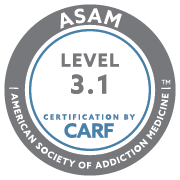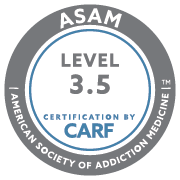There are many stereotypes of addiction in popular culture. People are depicted as willing to do anything to get their drug of choice. Many addicts aren’t homeless, they don’t consciously steal or deceive and they’ve likely never been arrested. However, not meeting these stereotypes doesn’t mean you don’t have a problem. In fact, the sufferer often doesn’t understand the full breadth of their illness. So, how do you know when you need help?
Understanding Addiction
Signs and symptoms of addiction can vary from person to person and also differ depending on the substance a person is using. Addictions are underlined by a dependence on a substance or an uncontrollable impulse. They can range from alcohol and drug dependency to sexual addiction.
While each addiction is unique, it often manifests itself in one of three distinct ways:
- craving for the drug of choice or the behavior
- loss of control
- continuing use despite adverse consequences
To determine if you or a loved one is suffering from an addiction, here are a few behaviors to look for:
- A person is unable to control their use, or when attempting to stop using, they feel anxious or very uncomfortable
- Withdrawal symptoms such as moodiness, feeling of emptiness, insomnia, and/or anger are exhibited
- A user may make social or recreational sacrifices in order to satisfy their addiction. This eventually causes a disruption in their life
- Risk taking or obsessive behavior may increase
- Attempting to hide or deceive others about the extent of their use
- Attempts to quit will often lead a user to revert to the behavior, and they will be unable to stop on their own
- Excessive consumption, stashes, financial difficulties, and relationship difficulties
Addictions and habits may seem like similar behaviors. However, an addiction has a psychological component that makes it difficult or impossible for a person to control, while a habit is something one can stop willingly.
Chemical dependency, eating disorders, and sexual addiction are all illnesses characterized by once pleasurable pursuits gone awry. These behaviors that were once occasional and enjoyable, have progressed to a point where they have become harmful.
Seeking treatment
If you’re concerned that your behaviors may be a sign of an addiction, we can help. Our admissions team has licensed addiction counselors available to answer questions and address concerns about yourself or a loved one.
Our Admissions Department can be contacted at the following phone numbers: 406-248-3175 or 800-227-3953. Normal admission hours are between 8:00 am and 5:00 pm Mountain Time, Monday through Friday, however, we have counselors available at all times for those seeking help.
Rimrock understands how difficult it can be to ask for help. Let one of our licensed counselors help you understand addiction and identify a path to healing.
Rimrock
1231 North 29th Street Billings, MT 59101
406.248.3175






